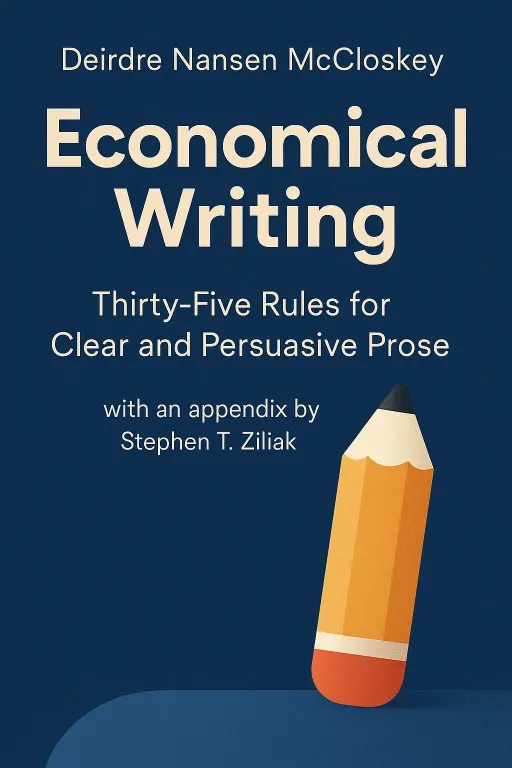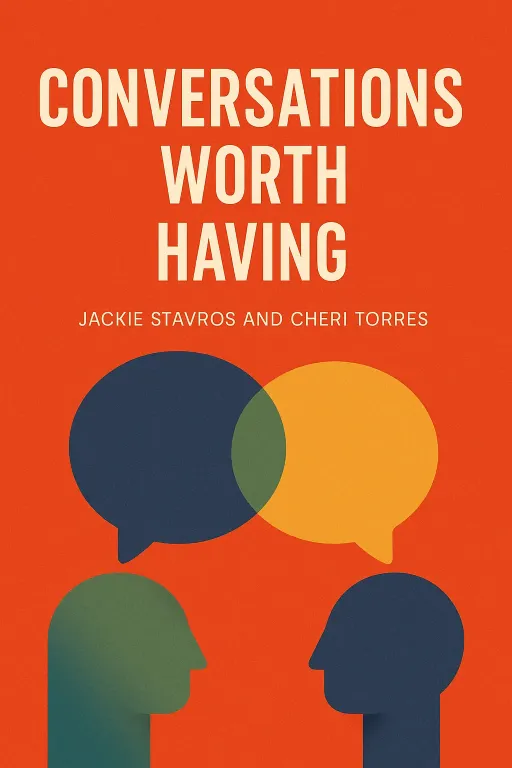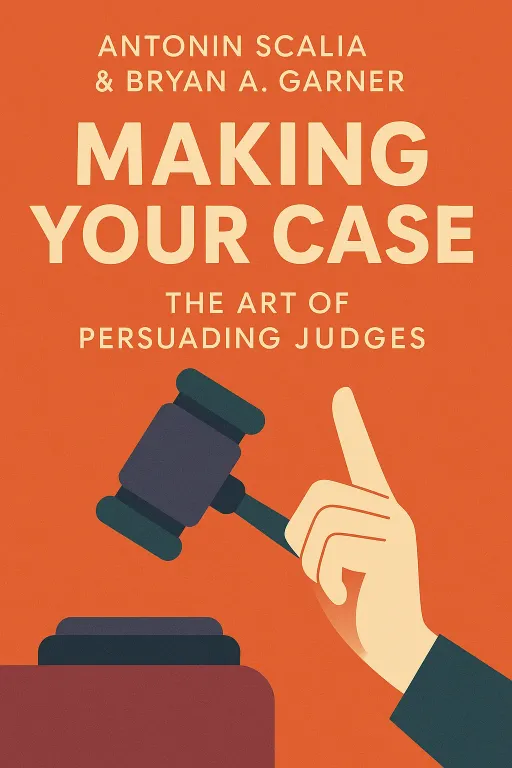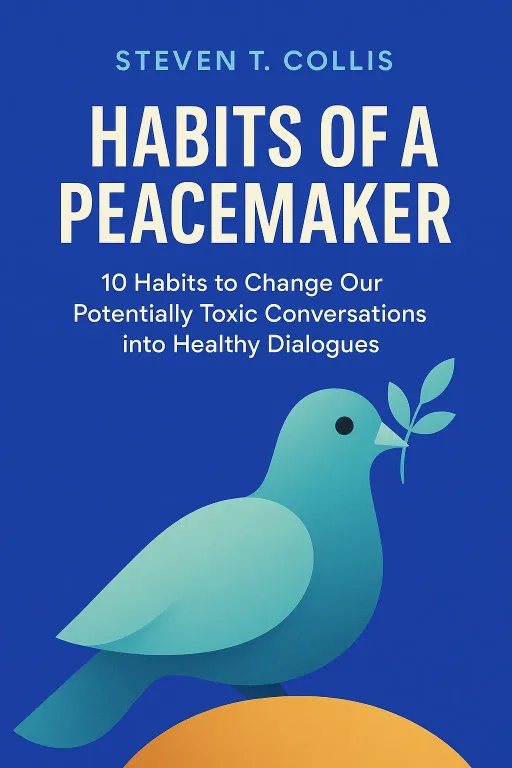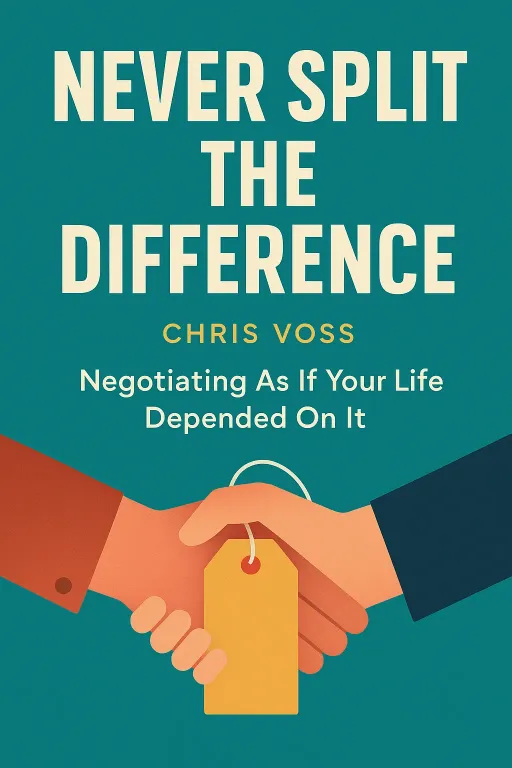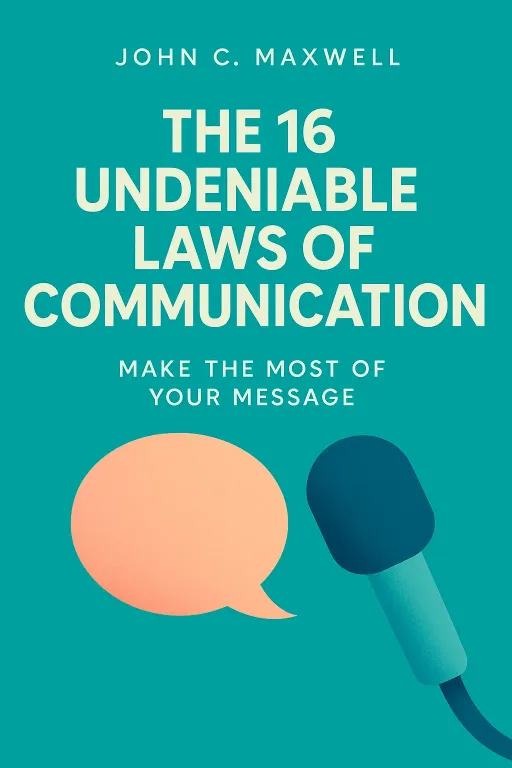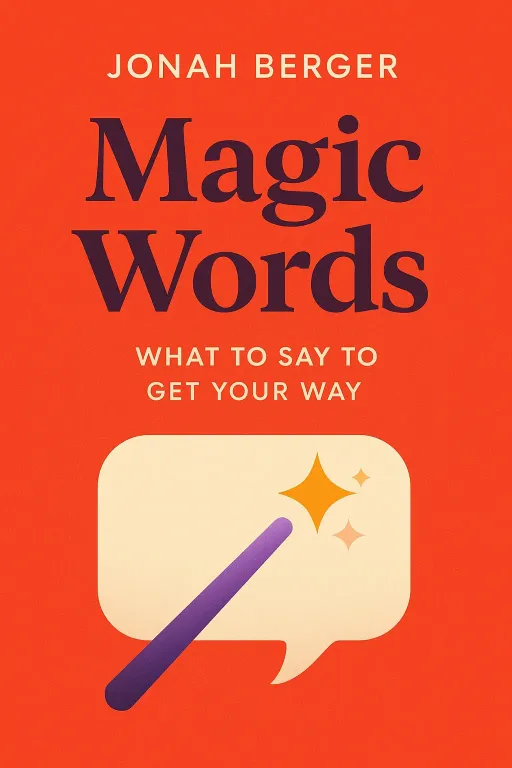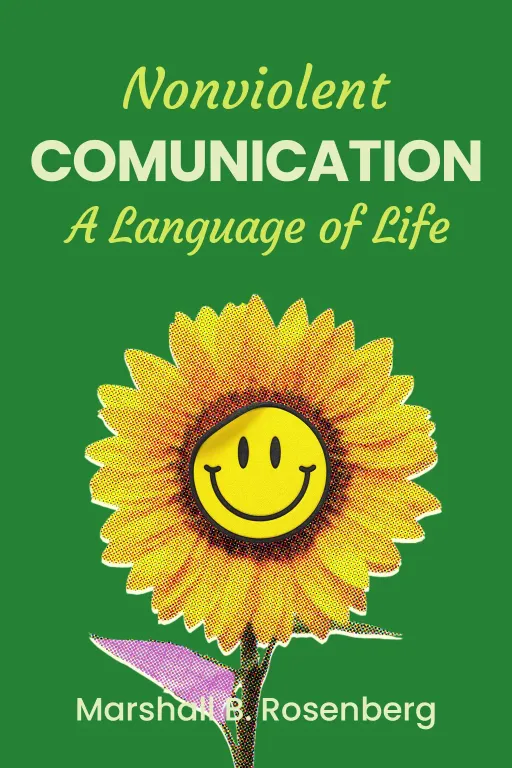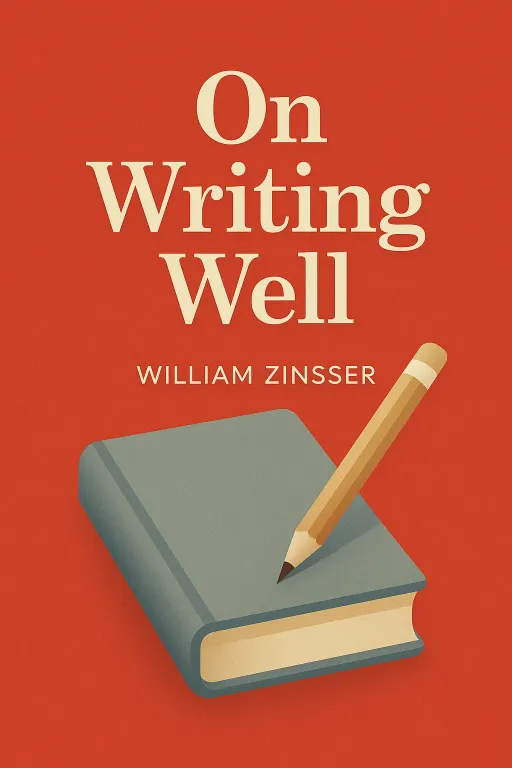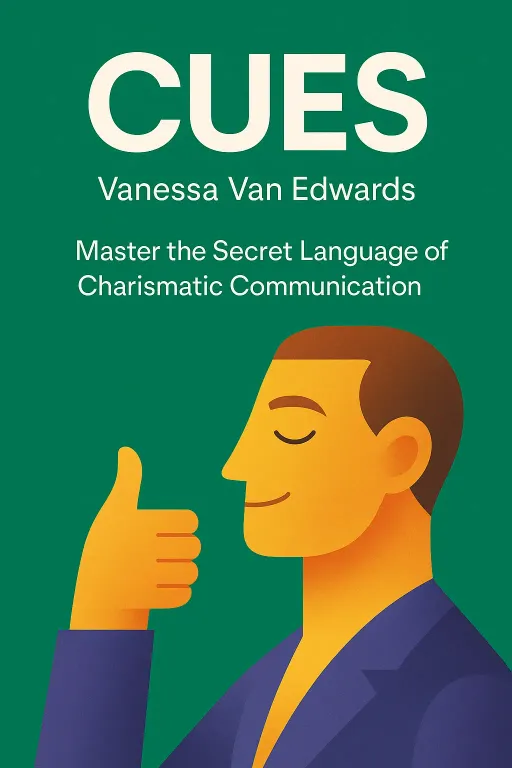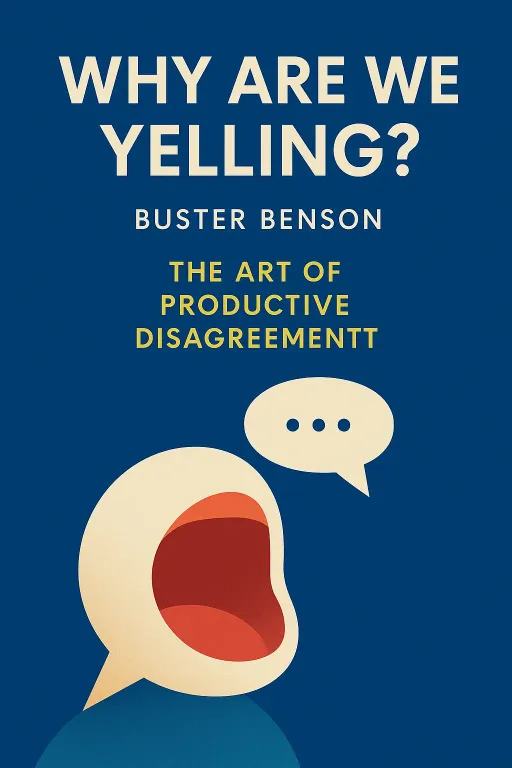
Your Disagreement Compass
10 minGolden Hook & Introduction
SECTION
Michelle: Alright Mark, I have a book title for you: Why Are We Yelling? What do you think that book is about? Mark: Oh, that's easy. It's clearly a survival guide for Thanksgiving dinner. Or possibly a training manual for anyone who's ever dared to read a comment section on the internet. Michelle: (Laughs) You are not wrong on either count. But it's actually Why Are We Yelling?: The Art of Productive Disagreement by Buster Benson. And it’s one of the most practical guides to navigating conflict I’ve ever read. Mark: The art of productive disagreement? That sounds like an oxymoron, like "jumbo shrimp" or "silent alarm." Michelle: That's exactly the point! What's fascinating is that the author, Buster Benson, isn't a therapist or a philosopher—he's a tech veteran from places like Amazon, Twitter, and Slack. He's spent decades in environments where brilliant, passionate people disagree intensely, so he's had a front-row seat to both disastrous and productive arguments. Mark: Okay, that actually gives it some serious credibility. He’s been in the trenches. So if this is a field guide to the jungle of disagreement, what's the first rule? How do we even start to think about this differently?
The Weed in Your Mind: Why We're All Arguing Wrong
SECTION
Michelle: Well, Benson starts with a fantastic story that perfectly captures our broken approach. Picture a guy in his suburban backyard on a sunny afternoon. He’s furiously, angrily, pulling weeds from his garden. He’s sweating, he’s swearing, he’s just yanking them out with pure aggression. Mark: I am intimately familiar with this man. I have been this man. Michelle: Exactly! So his neighbor, a calm, knowledgeable gardener, comes over and hears the commotion. She tries to offer some advice. She says, "You know, if you pull them like that, the roots just break off and they'll grow back stronger. You have to get underneath them gently." She even points out that some of these "weeds" are actually edible, like dandelion greens, and can be good for the soil. Mark: And let me guess, he tells her to mind her own business and that he doesn't have time for all that. Michelle: Precisely. He yells that he just wants them gone, threatens to burn the whole yard down, and storms back inside, completely frustrated and unresolved. Benson uses this as a perfect metaphor. We treat arguments like that man treats weeds. We see them as ugly, invasive problems that must be destroyed as quickly and violently as possible. Mark: That hits a little too close to home. My goal in an argument is usually to win, to eradicate the other person's bad idea, and move on. To pull the weed. Michelle: And that’s the first of three huge misconceptions the book tackles. The first is that arguments are inherently bad. We see them as nuisances at best, mortal enemies at worst. But Benson argues they’re not bad, they’re just signposts. That weed, or that argument, is signaling that something important is at stake, something that needs attention. Mark: A signpost to what, though? Usually it just feels like a signpost to a headache. Michelle: It could be a signpost to a difference in values, a misunderstanding of facts, or a conflict in needs. Which leads to the second misconception: that arguments are about changing minds. The weed-puller wasn't trying to learn about gardening; he was trying to impose his will on the garden. We do the same thing. We go into a disagreement to force the other person to adopt our view. But as the book points out, that almost never works. It often triggers a "backfire effect," where people dig in their heels even more. Mark: Okay, I can see that. The harder you push, the harder they push back. So arguments aren't bad, and they don't really change minds. What's the third misconception? Michelle: That arguments end. The man pulls the weeds, but the roots are still there. They will pop back up next season. Benson says most of our recurring arguments are the same. They have deep roots—in our values, our histories, our anxieties—and they don't just disappear after one conversation. They're ongoing dialogues. He opens the book with a beautiful quote: "A weed is but an unloved flower." It’s about shifting our perspective entirely. Mark: I like the poetry of that, but let's be real. Some arguments are just dumb. They're not unloved flowers, they're poison ivy. Are we supposed to treat every Twitter troll's argument as a beautiful opportunity for growth? Michelle: That’s a fair challenge. And no, the book isn't saying you have to productively engage with every bad-faith argument you encounter. It's about recognizing that for the disagreements that matter—with your partner, your colleagues, your family—your goal shouldn't be eradication. It should be understanding. And to do that, you need a new set of tools. You need a compass.
The Disagreement Compass: Navigating with Voices and Realms
SECTION
Mark: A compass? Okay, I'm intrigued. If I'm not trying to just win, what am I trying to do? Where does this compass point? Michelle: It points you toward understanding what's really going on, both inside your own head and in the conversation itself. Benson gives us two main tools for this compass. The first helps us understand our internal reactions. He says we all have four "internal voices" that activate when we face a disagreement. Mark: Four voices. This sounds like it could get crowded. Michelle: It is! But you'll recognize them instantly. To explain, he tells a simple story about his two-year-old son, Louie, playing with his favorite pink train. His friend, Ellie, comes over and starts playing with it. What do you think happens? Mark: Total toddler meltdown. Screaming, grabbing, the works. "MINE!" Michelle: Exactly. Louie screams "MY TRAIN!" That, Benson says, is the Voice of Power. It’s the primal, instinctual voice that wants to dominate and win through force. It's about control. Then the parent steps in and says, "Now, Louie, we have to share our toys. It's the nice thing to do." That's the Voice of Reason. It appeals to rules, logic, and shared norms to resolve the conflict. Mark: I see. And I'm guessing the Voice of Avoidance is when the other parent just pretends not to see what's happening and keeps scrolling on their phone. Michelle: (Laughs) Precisely! It’s the voice that says, "The only winning move is not to play." It just disengages. But there's a fourth voice, the one we need to cultivate. It's the Voice of Possibility. This voice doesn't try to win, or reason, or run away. It gets curious. It asks, "What's really happening here? What could we learn? What else is possible besides this tug-of-war?" Mark: Huh. The Voice of Possibility. It sounds nice, but also a bit... passive. How does it actually solve the problem of the pink train? Michelle: It might not solve it in that instant, but it changes the goal. Instead of just ending the fight, it seeks to understand the anxiety behind it. And that brings us to the second tool in our compass: The Three Realms of Disagreement. This is maybe the most useful concept in the whole book. Mark: Okay, lay it on me. What are the realms? Michelle: Benson says nearly every disagreement happens in one of three realms, or often, all three at once. They are the Head, the Heart, and the Hands. He uses the classic argument of a couple deciding what to watch on TV. Mark: Oh, a battle I know well. Michelle: Right. An argument in the Head realm is about what is true. It's about facts and data. So, "We watched your show for three hours this week, and my show for only one hour." That's a factual claim you can verify. It's a Head argument. Mark: Got it. Factual. Verifiable. Michelle: An argument in the Heart realm is about what is meaningful. It's about values, emotions, and personal taste. For example, "Yes, but your show is trashy reality TV, and my show is an award-winning historical drama that enriches my soul!" You can't prove that with data. It's a Heart argument. Mark: Okay, so values and feelings. What's the third one? Michelle: The Hands realm is about what is useful. It's about practicalities, strategies, and actions. For example, "Okay, look, your show is on at 8, mine is on at 9. How can we plan dinner and our evening so we can both watch our shows and still get to bed on time?" That's a Hands argument. It's about logistics. Mark: Wow. Okay. That is incredibly clear. And I can see immediately how we get it wrong. We're having three different arguments at the same time and don't even realize it. I'm throwing Head-realm facts—"You watched for three hours!"—at my partner, who is making a Heart-realm argument—"But my show is important to me!" And we're just talking past each other. Michelle: That is the breakthrough insight! We use the wrong tools for the wrong realm. You can't win a Heart argument with Head facts. You can't solve a Hands problem by debating values. By simply asking, "Wait, what realm are we in right now?" you can completely change the dynamic of the conversation. You stop yelling and start diagnosing.
Synthesis & Takeaways
SECTION
Mark: It really does feel like a compass. Instead of just being lost in the woods of an argument, you can actually pull it out and get your bearings. "Okay, I'm hearing a lot of the Voice of Power, and we seem to be stuck in the Heart realm." Michelle: Exactly. The big shift the book offers is moving from seeing disagreement as a threat to seeing it as information. That weed in the garden isn't the enemy; it's a signpost. The yelling isn't the problem; it's a symptom of us using the wrong tools for the job, or arguing in the wrong realm. Mark: It reframes the entire goal. It’s not about victory, it’s about discovery. Michelle: Yes! There's a fantastic line in the book that sums it all up: "Arguments aren’t about changing minds. They are about bringing minds together." The point isn't to drag someone over to your side of the line. It's to understand why their line is where it is, and to see if you can build something new together in the space between. Mark: That makes it feel so much less adversarial. It’s less like preparing for battle and more like preparing for an exploration. You're not packing a sword; you're packing a compass and a map. Michelle: I love that. And you don't have to master all of this at once. The book offers a really simple, practical first step. The next time you feel that spark of anxiety in a disagreement, just pause for a second and ask yourself one question: Is this a Head, Heart, or Hands problem? Just diagnosing it can change everything. Mark: That's a great takeaway. I'm also genuinely curious what people's default internal voice is. I have a feeling the Voice of Power makes a lot of guest appearances in my head. I'd love to hear some of our listeners' funniest 'Voice of Power' moments. Michelle: I'm sure we'd all recognize ourselves in those stories. It’s a journey of noticing, not of perfection. Michelle: This is Aibrary, signing off.
